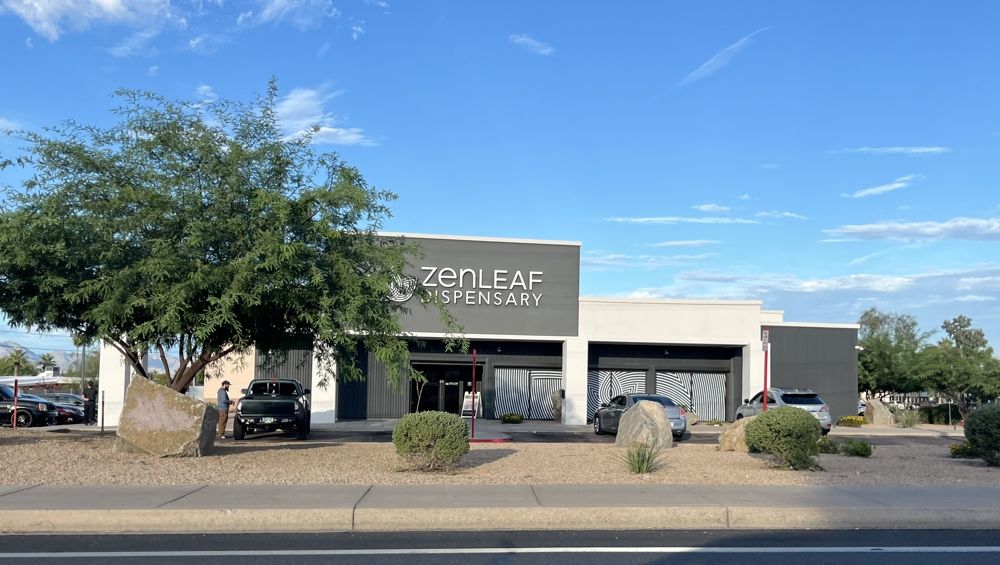As the cannabis retail sector matures, the industry’s reliance on technology, especially Point of Sale (POS) systems, is no longer optional but essential. These systems manage everything from inventory and sales tracking to compliance reporting and customer loyalty programs. But as the tech stack in dispensaries becomes increasingly sophisticated, a critical question arises: are the built-in security and IT capabilities of cannabis POS systems sufficient, or do dispensaries still need third-party IT and security partners to remain secure and operational?
The Promise of Built-In Security
Modern cannabis-specific POS platforms like Dutchie, Treez, Cova, and BLAZE have stepped up in recent years to offer a more integrated and secure experience. These platforms tout features such as two-factor authentication (2FA), end-to-end encryption, role-based user permissions, and real-time compliance reporting to systems like METRC or BioTrack. On paper, this looks like a turnkey solution, and for many small dispensaries, it may be.
Dutchie, for example, markets its POS and ecommerce suite with “enterprise-grade security”, emphasizing PCI compliance and encrypted cloud-based systems. Cova similarly highlights automatic cloud backups, offline modes to protect data during internet outages, and audit trails for regulatory inspection. These built-in features have reduced the barrier to entry for many cannabis entrepreneurs who may lack the resources or know-how to set up advanced IT infrastructure.
But are these features really enough?
The Growing Threat Landscape
Despite these assurances, dispensaries remain a high-value target for cybercriminals. In 2024, STIIIZY, one of the largest cannabis brands in the U.S., experienced a major data breach affecting both customer and internal data. While STIIIZY operated a much larger and more complex infrastructure than a single-location dispensary, the breach highlighted an industry-wide vulnerability: cannabis tech vendors are still catching up to mainstream security protocols.
A recent report by CyberRisk Alliance found that 59% of cannabis operators surveyed had experienced some form of cyber threat or data loss in the past two years. While many POS providers offer baseline protections, they are not always prepared to defend against DDoS attacks, malware, ransomware, or employee credential theft, all of which are becoming more common.
Where Third-Party IT Shines
Third-party IT and security providers offer layers of protection and support that most POS companies do not. These include:
- Advanced firewall and network monitoring tools
- Managed threat detection and incident response
- Regular vulnerability assessments and penetration testing
- HIPAA-grade data compliance consulting for cannabis clinics
- Staff training on phishing and cybersecurity hygiene
For dispensaries operating in multi-state environments or managing high-volume ecommerce, the stakes are too high to rely solely on vendor assurances. Third-party providers can ensure that systems are not only secure but also interoperable across platforms, especially when integrating with delivery platforms, CRM software, and inventory systems.
Additionally, should a dispensary experience a breach, an external IT team can step in swiftly to contain the threat, recover lost data, and help with insurance claims or legal documentation.
Cost vs. Risk
The main argument against third-party IT services is cost, and it’s valid. A typical IT management retainer can range from $500 to $2,500 per month, depending on the complexity of the operation. But when weighed against the potential loss from a cyberattack, which could include fines, lost revenue, brand damage, and legal exposure, the investment often pays for itself.
MJBizDaily reported in 2023 that the average cost of a cannabis data breach was $167,000, not including regulatory penalties. For businesses operating in strict states like Florida or Massachusetts, even small security incidents can lead to license suspensions or public disclosure requirements.
The Compliance Perspective
Security is not just about locking down data, it’s about meeting state-mandated compliance standards. Many regulators now require proof of data protection protocols, secure audit trails, and user access logs. While top POS systems provide these features in a limited scope, third-party partners can offer deeper, customizable compliance solutions that adapt to each state’s evolving regulations.
In states where medical patient data is involved, third-party firms can ensure compliance with HIPAA-like protections, something that many POS platforms are not yet legally bound to enforce, but are increasingly being held accountable for.
Final Thoughts: Fit for Purpose?
The answer depends on the scale and complexity of the operation. For a single-location dispensary with minimal tech integrations and a modest customer base, a well-maintained POS with strong built-in security may suffice, especially if combined with smart internal practices like password rotation and limited admin access.
But for multi-location chains, delivery services, or operations with significant customer data, inventory, and compliance exposure, relying solely on built-in POS features is a gamble. Third-party IT and security partners offer a necessary layer of protection that future-proofs operations and safeguards a business’s license, revenue, and reputation.
In a rapidly evolving industry facing increasing scrutiny and cyber risks, investing in dedicated IT and security is not just smart, it might soon become a requirement, not a recommendation.

